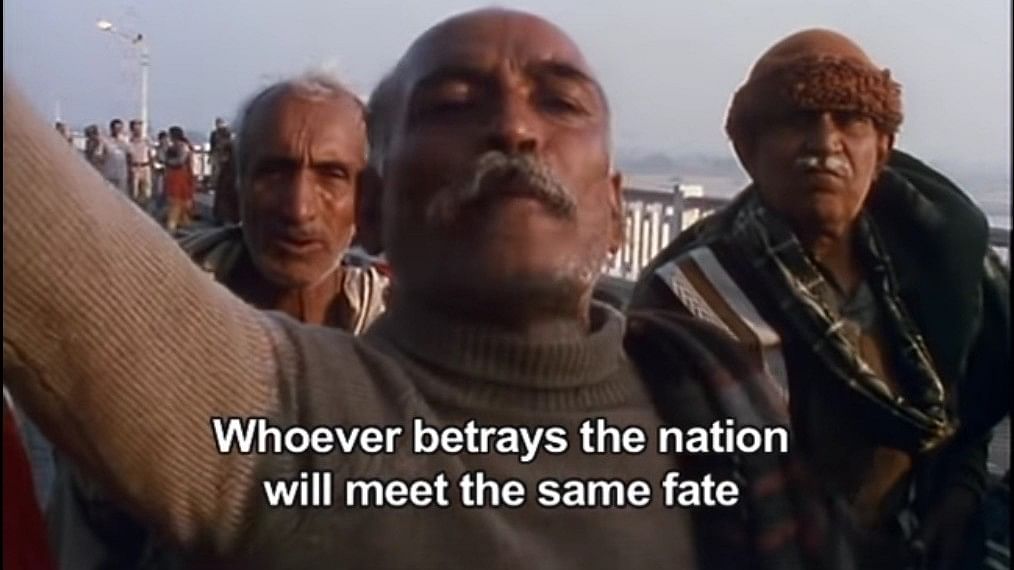
Another Independence Day has come and gone. Flags have been hoisted and patriotic songs sung with much fervour.
However, these celebrations fail to acknowledge the brutal reality which many Indians are grappling with.
Shackled by casteism, religious disharmony, farmer suicides and rampant misogyny — what freedom are we really celebrating?
The real side of India that is still ‘unfree’ is captured in many films and documentaries made over the years by undeterred individuals who have realised that the dawn is yet to come.
Nagraj Manjule’s poetically scathing portrayal of caste discrimination in ‘Fandry’ (2013) is the other side of India which is seldom brought to notice in the mainstream that is filled with laborious chest-thumping. Manjule reflects on this entrapment of people from the marginalised castes in India, by designing a powerful scene towards the end of the film. As the family of the
protagonist is hunting a pig to keep it away from the upper caste folks in the village, the national anthem begins to play in a school nearby. This scene speaks volumes of how the national symbols mean very little in such oppressed realities. What does ‘freedom’ mean to this family?
In the documentary, ‘In The Name of God’ (1992) by Anand Patwardhan, there are multiple visuals of Hindus spewing hatred against Muslims without an iota of shame. The entire film is filled with many such instances which are a disturbing testament to the religious intolerance prevalent in the country. Not only are these defying the fundamentals of humanity, but they outrightly go against the values enshrined in the Constitution of India.
Another film that lays bare the systemic negligence shown by governments towards its most marginalised is the 2009 documentary ‘Nero’s Guests’ by Deepa Bhatia. It covers journalist P Sainath as he reports on the increasing farmer suicides in the state of Maharashtra. The film also portrays the irony of the mainstream media which failed to report on cotton farmer suicides, but covered fashion events.
More such films that narrate the real stories of India are ‘Periyerum Perumal’ (2018, Tamil) and the Malayalam film, ‘The Great Indian Kitchen’ (2021) by Jeo Baby, which is a portrayal of women trapped in rigid patriarchal structures.
Chaitanya Tamhane’s ‘Court’ (2014) posed pertinent questions on the condition of judiciary in the country and how justice is delayed due the legal procedures.
The abundance of patriotic films has made us take pride in our country without feeling accountable for its issues. It helps in maintaining the status-quo and keeps its citizens from looking at the dark side. The real patriotic films are the ones that ask difficult questions and are undeterred in their portrayal of an India that is not perfect. These films are made with the only hope of helping others realise the state we are in and to stir up conversations.
Independence Day should be a reminder to ask ourselves how free we really are. If patriotism is loving the country to the fullest, why is there little outrage about issues that plague us even to this day?
Hiding in the films of Manjule, Patwardhan and others, is a deep-seated disappointment about the state-of-affairs. These films should be revisited in the month of August as a reminder of the oppression that has not been remedied since 1947.